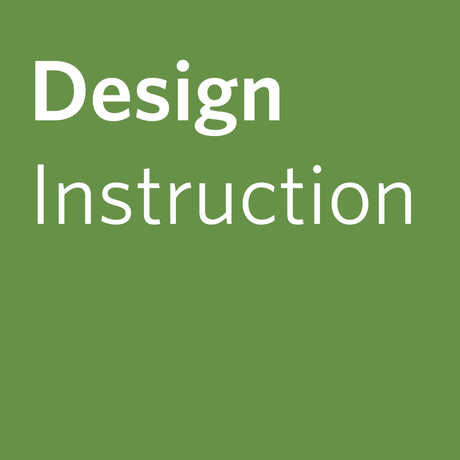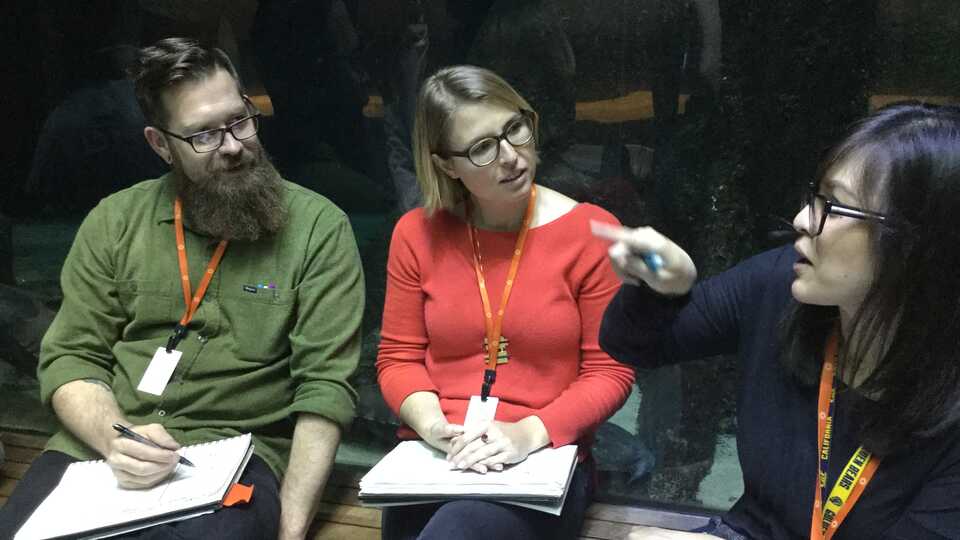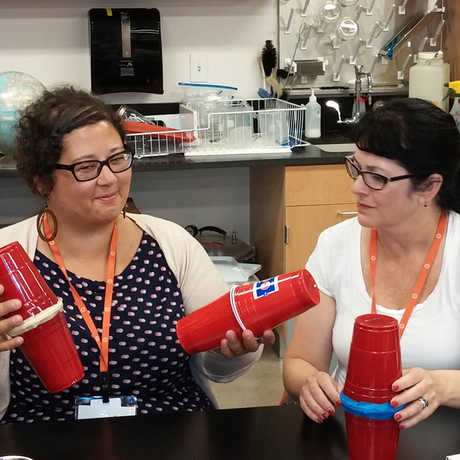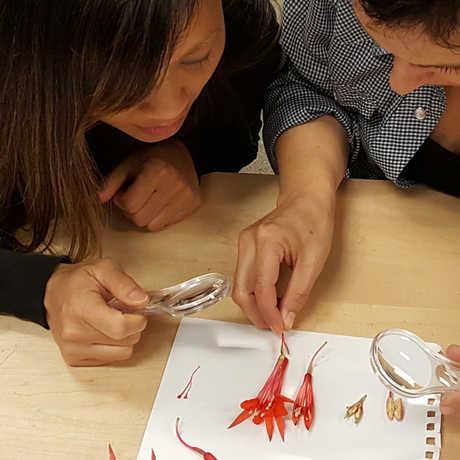

In the context of professional development in teaching science, translation time is an opportunity for teachers to reflect on their own experience participating as a learner in order to move toward translating new ideas and strategies into their own classrooms.
Prompts to guide teachers in the reflective discussion necessary for this kind of translation back to their classroom should include a call back to their learning experience, and a juicy prompt to apply things that they experienced, noticed, felt, thought and/or learned to their specific teaching contexts.
How to prompt translation depends on the goals of the professional learning experience. Below are a few examples of translation prompts we have used with groups of teachers in a variety of situations.
Example 1: Strategies for planning instruction
Context: Teachers have completed a multi-day series of adult-level investigations, all building toward answering one overarching question. The investigations progressed from extremely structured and guided during the first investigation, to a very open and learner-driven final investigation, modeling the Levels (or Spectrum) of Inquiry. Teachers were also exposed to multiple science tools like microscopes and pipettes, which they had opportunities to use in several investigations.
Goals: Teachers acknowledge the purposefulness of the progression of activities they took part in, and consider applying the idea of a steady building of expertise to their own classroom.
Translation prompts:
How has the progression of science lessons helped you build expertise…
- with understanding the science content?
- with using scientific tools?
- with planning and carrying out an investigation?
How might you design your unit in order to build students’ expertise?
Example 2: Benefits of a new pedagogical move
Context: Teachers have completed a lesson or unit in which facilitators intended to model the approach of “activity before content (ABC).” Facilitators also were intentional about delivering content in a variety of ways, including via images, demos and experiences, hints and questions, etc.
Goal: Teachers consider the opportunities for and impacts of involving students in activities early on, instead of front-loading content.
Translation prompts:
Think about the content delivered to you during the lesson:
- What did we tell you? What didn’t we tell you?
- How did we tell you? When did we tell you?
Think about ways that you deliver content to students:
- How much do students need to know before they can start figuring something out?
- (Why) does timing matter?
Example 3: Opportunities to use a specific strategy
Context: Teachers have participated as learners in two days of activities exploring the Earth-sun system using multiple physical models and data representations. Along the way they have been asked to construct a cognitive model for their understanding, and to share their own answer to the question, “Why are there seasons?”
Goal: Teachers understand the value of providing many representations of the same content to students and think about content areas they teach that might benefit from this approach.
Translation time prompts:
You were introduced to multiple representations of the Earth-Sun system over the last two days:
- Were some representations more valuable to you than others? Why or why not?
- Is there content that you teach that might benefit from representing a concept or relationship in different ways? How might you do this… or how do you already do this?
Example 4: Bringing a new tool into the classroom
Context: Teachers have completed a day-long workshop exploring strategies for using science notebooks as a tool for meaning-making.
Goal: Teachers leave with practical takeaways for their own classrooms, based on what stood out to them during their learning experience.
Translation time prompts:
- How has using a science notebook helped you as a learner today? (Use your notebook to share concrete examples with your group.)
- How might you use science notebooks with your students next year?
- How might you set them up?
- How could they support student meaning-making?
- How can student notebooks inform your teaching?
References
Bell, R.L, Smetana, L. & Binns, I (2005). Simplifying Inquiry Instruction: Assessing the inquiry level of classroom activities. The Science Teacher 72(7), 24-29.


